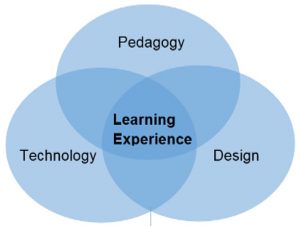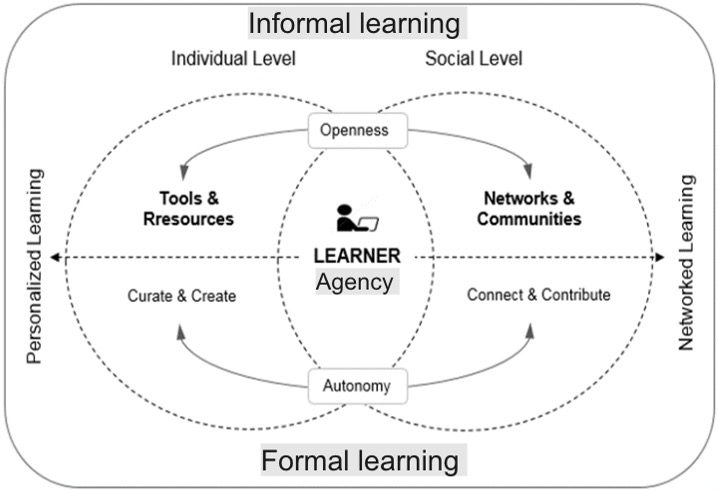The two main goals of Global Campus project: expanding online learning and conducting innovative and agile EdTech experiments are backed with learning design. We strive to harness pedagogical, technological, and design dimensions of online learning by applying a research-based learning design approach to create engaging and participatory “learning experience”. Using this learner-centered approach, we want to ensure that how learning theories and pedagogical research inform our learning design and that the learner is at the forefront of our development.

Implications from research and practice indicate that the majority of online learning courses and MOOCs lack in terms of pedagogical design and usability. In order to overcome these limitations and to craft pedagogically-informed learning experience ,we employ a learner-centered design framework that makes effective use of appropriate pedagogy and technology.

Learner-centered design framework (Saadatmand, 2017)
The underlining pedagogical principles of this framework are: personalization of learning, social aspects of learning (community and collaborative work) self-paced learning, autonomy, and agency.
The dynamic interplay among pedagogical, technological, and design components help create a learning ecosystem which meets the needs of learners and the essentials of an engaging online learning environment i.e. accessibility, usability, interactivity, flexibility, and multimodality.
